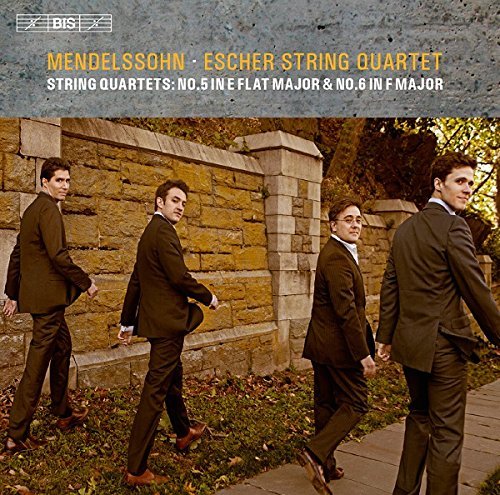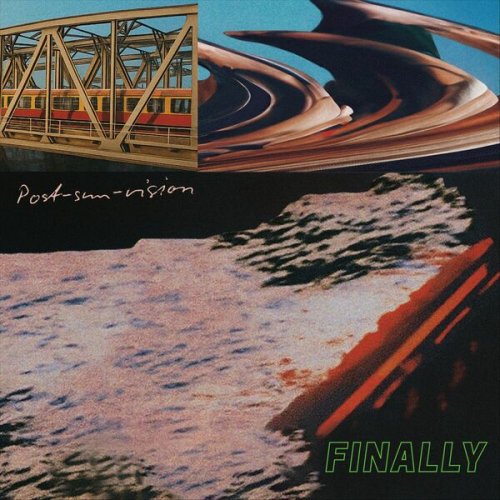Escher String Quartet - Mendelssohn: String Quartets Nos. 5 & 6 (2016)

Artist: Escher String Quartet
Title: Mendelssohn: String Quartets Nos. 5 & 6
Year Of Release: 2016
Label: BIS
Genre: Classical
Quality: FLAC (image + .cue, log, artwork)
Total Time: 71:17 min
Total Size: 361 MB
WebSite: Album Preview
Tracklist:Title: Mendelssohn: String Quartets Nos. 5 & 6
Year Of Release: 2016
Label: BIS
Genre: Classical
Quality: FLAC (image + .cue, log, artwork)
Total Time: 71:17 min
Total Size: 361 MB
WebSite: Album Preview
String Quartet No. 5 in E-Flat Major, Op. 44 No. 3, MWV R 28
I. Allegro vivace
II. Scherzo: Assai leggiero vivace
III. Adagio non troppo
IV. Molto Allegro con fuoco
4 Pieces for String Quartet, Op. 81
Capriccio in E Minor, Op. 81, No. 3, MWV R32
Fugue in E-Flat Major, Op. 81, No. 4
String Quartet No. 6 in F Minor, Op. 80, MWV R 37
I. Allegro vivace assai
II. Allegro assai
III. Adagio
IV. Finale: Allegro molto
The Escher Quartet opened their traversal of Mendelssohn’s string quartets with the first and the fourth quartets, along with an unnumbered early work in E flat major, on a disc which the reviewer in The Strad summed up as a ‘A deeply rewarding release … and by any standards a distinguished one’. The same magazine made the sequel – with the second and third quartets – its recommendation in the November issue of 2015. On the third and final disc in the series, time has come for the two last quartets, as well as the Capriccio and Fugue from the Op. 81 set of Four Pieces for String Quartet begun on the previous instalment. The String Quartet No. 5 in E flat major belongs to the three quartets composed in 1837-38 as Op. 44 and is often considered a masterpiece of the genre. Ever modest, Mendelssohn himself recommended the set to his friend, the pianist Ignaz Moscheles, with the words: ‘there are one or two amongst them I am pleased with myself, and I should like to know that I am right, and that you too are satisfied with them’. Published posthumously, the Quartet No. 6 in F minor, Op. 80 holds a special place in Mendelssohn’s list of works: not only is it one of his very last compositions, but the breath-taking work is the direct and heartfelt response to the unexpected death of his beloved sister Fanny. ‘The impassioned character of the entire work seems to me to be in keeping with his [Mendelssohn’s] profoundly unsettled state of mind’, Moscheles noted in his diary after having heard the quartet at the composer’s home on 5th October 1847. A month later, after suffering a number of strokes, Mendelssohn died.







![Afrodream - Guiss Guiss (2025) [Hi-Res] Afrodream - Guiss Guiss (2025) [Hi-Res]](https://www.dibpic.com/uploads/posts/2025-12/1765638325_a2717494732_0.jpg)
